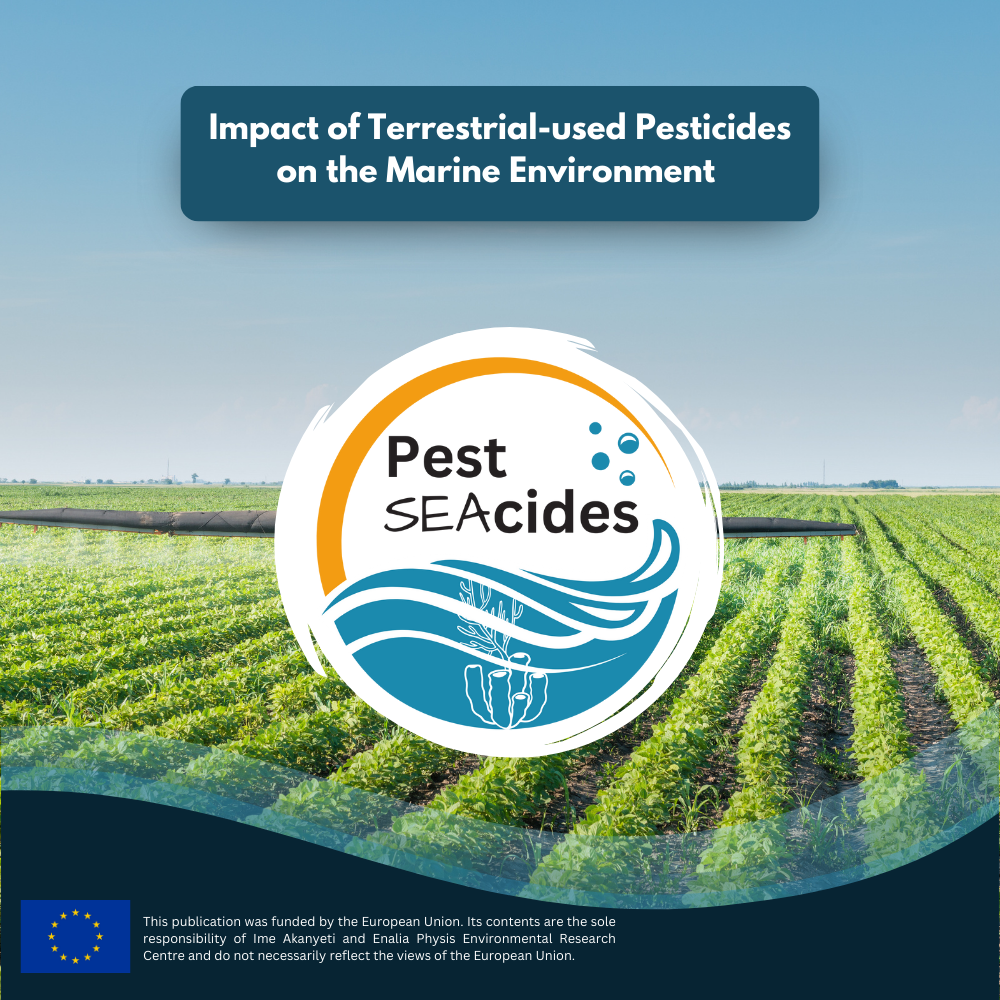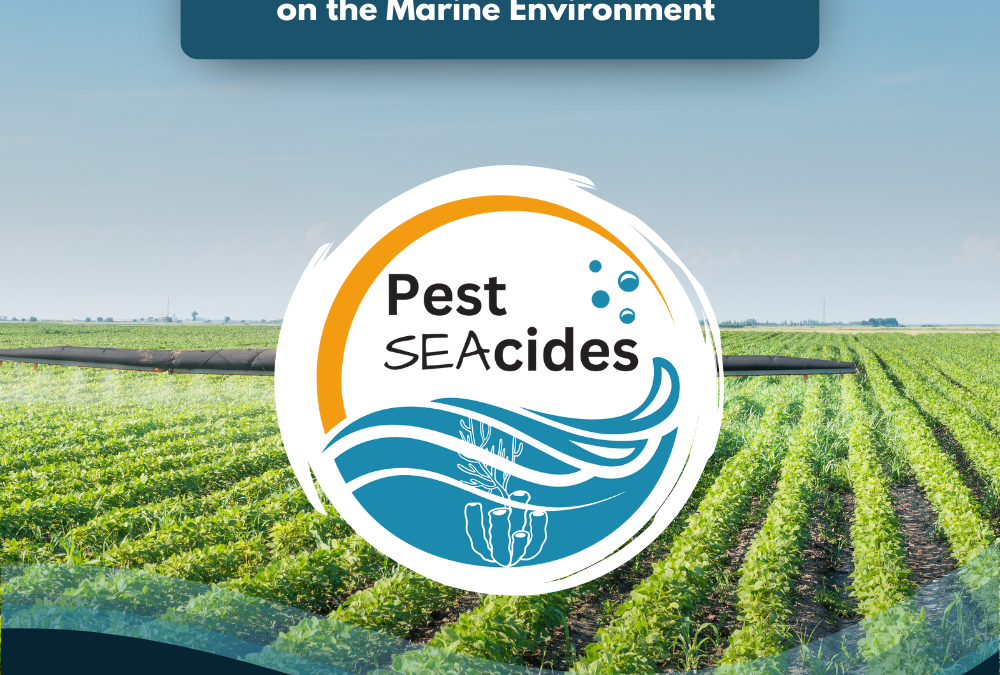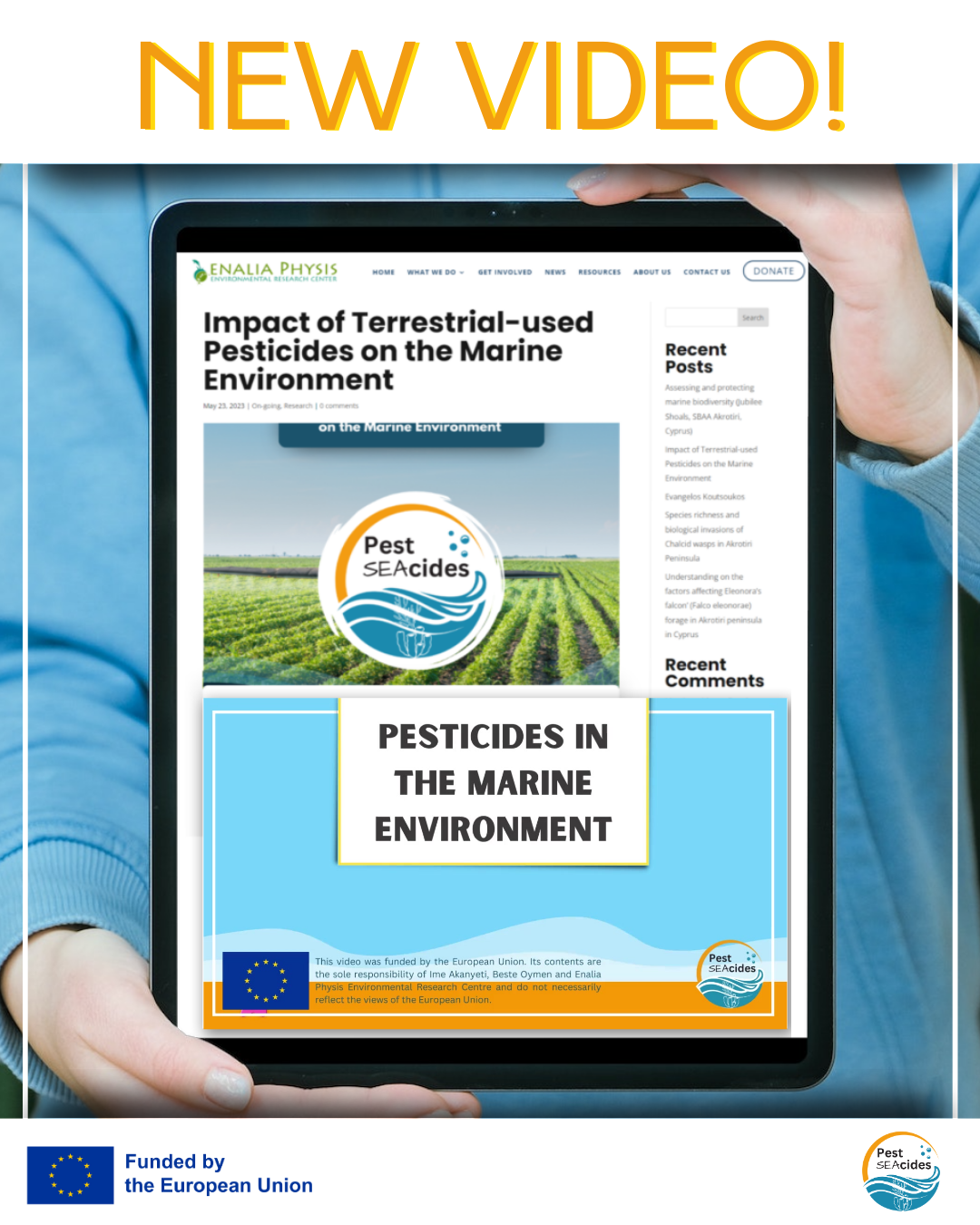Impact of Terrestrial-used Pesticides on the Marine Environment
Project Title: Impact of Terrestrial-used Pesticides on the Marine Environment
Funding: Impact of Terrestrial-used Pesticides on the Marine Environment (PestSeaCides) Project is funded by the European Union within the scope of the Aid Programme for the Turkish Cypriot community.
Introduction: The adverse impacts of pesticide pollution on environmental and public health are major concerns in many countries where there is a lack of effective regulations and monitoring schemes on pesticide use and control in agriculture.
Based on the 2017 European Union report on EU Member States’ pesticide residues in food, Cyprus had the highest maximum residual limits (MRLs) exceedance rates for food and animal feeds followed by Greece. These results indicate that there is no effective control on how farmers apply pesticides on their land and the quantities and types of pesticides they can purchase. Similar problems exist in the northern part of Cyprus. Hence, excessive use of pesticides results in environmental pollution.
Determining the concentration of the pesticides in marine organisms and comparing with the maximum residue limits will enable us to interpret the results and conclude whether the pesticide pollution is a serious health risk for the Cypriot society. Similarly, detection of pesticides in the water samples will indicate the pollution of the ground waters which are important resources for consumption and drinking. Last but not least, the study findings and policy brief will enable to form the baseline for the decision makers to revise their policy strategies for pesticide use and control and to protect the marine environment for the whole island. All these are directly related to the quality of life of the Cypriot society and sustainable management of marine life.
Situation in Cyprus: Pesticide residues in ground water in the northern part of Cyprus was previously studied in 2014. The findings demonstrated the presence of various pesticides indicating the transport of these toxic compounds into the water resources. The study report prepared in relation to the implementation of Marine Strategy Framework Directive (2008/56/EC) stated the presence of pesticides in marine environment in the Republic of Cyprus (RoC). However, the study elucidated only 14 pesticides while there are hundreds of different active substances used in agriculture.
Hence, it will be the first research project that will investigate the pollution of marine environment for more than 400 types of pesticides in selected locations from the whole Cyprus. The project is related to environmental protection, agricultural practices in terms of pesticide use and the marine wildlife considering that they are at risk due to the pesticide pollution. The study results will enable to identify similarities and differences in the target pesticide compounds resulting in pollution in the marine environment. Lastly, missing legal frameworks have to be developed and current ones should be improved to protect the water resources and the marine environment from pesticide pollution.
Objectives:
– To understand the fate of transportation of pesticides through seepage of ground- waters into the marine environment.
- To determine the existing situation in terms of pesticide pollution in the marine environment and advocate for effective legislations in compliance with EU.
- To contribute to the big knowledge gap and benefit different stakeholder groups that are higher or lower in the hierarchy.
- To drive change on attitudes and perceptions on pesticides through education and awareness raising.
- To share scientific findings and raise awareness of the issue and possibly generate new research questions and create interest among the scientific community. This may lead to a future Mediterranean-wide project on the impacts of land-used pesticides on the marine environment.
Duration: Eighteen months.





Recent Comments